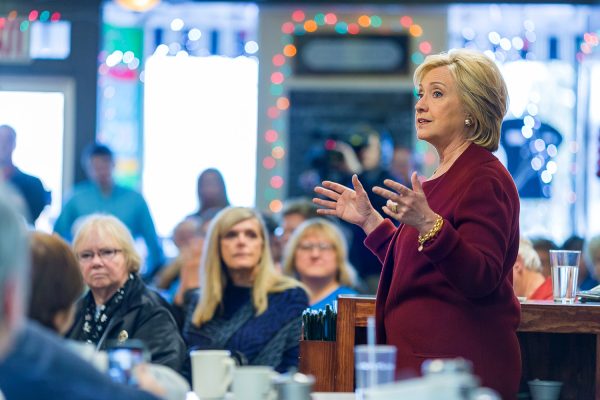
Hillary Clinton has a new plan to stop what she considers “unjustified” increases in drug prices.
Slate reports that her plan comes down to European-style price control.
As president, Clinton would create a task force of regulators with the power to decide whether price increases on old, essential medicines and devices were reasonable given product improvements and the amount of competition in the market. If not, the task force would have the power to mete out punishments to companies that were trying to profiteer, potentially with fines.
Fines would still require an act of Congress, where market-friendly Republicans are likely to retain their majority in the House of Representatives and block such penalties.
Nonetheless, as Slate puts it, “Clinton is subtly sending the message that she’s comfortable moving toward a more European system in which regulators have a direct say not just in what drug companies can charge the government, but what they can charge the rest of the public, too.”
It may not happen in the first four years of a Hillary Clinton presidency, but price controls are becoming Democratic Party policy — which means they could happen eventually.
Pattern
I understand the temptation. Mylan, a drug company, recently raised the price of its EpiPens, which are used to treat anaphylactic reactions, fivefold, setting off a firestorm of criticism.
Last year, Martin Shkreli’s Turing Pharmaceuticals raised the price of Daraprim, which is used to treat HIV, from $13.50 to $750 per tablet, creating another controversy. The Infectious Diseases Society of America and the HIV Medicine Association both called Daraprim’s price increase “unjustifiable” and “unsustainable for the health care system.”
These weren’t isolated incidents either.
Earlier in 2015, Rodelis Therapeutics raised the price of Cycloserine, a drug that is used to treat multidrug-resistant tuberculosis, from $500 to $10,800 for thirty pills.
After acquiring Isuprel and Nitropress, two heart drugs, from Marathon Pharmaceuticals, the company Valeant Pharmaceuticals hiked their prices 525 and 212 percent, respectively.
Some of these companies, like Shkreli’s, aren’t even pharmaceutical companies per se. They don’t develop any drugs; they buy patents from other companies, jack up the price and turn a profit. They should expect pushback. When you raise the price of your medication by 5000 percent for no apparent reason, you’re doing the left’s work for them and basically asking the government intervention.
But there are other companies that have good reason to raise their prices and there’s a reason to doubt price controls are the best policy in the end.
Why drugs are so expensive in the United States
There are many reasons why drugs are more expensive in the United States than they are in Europe. Here are a few:
- American patents last longer: Pharmaceutical companies in the United States can maintain an exclusive right to sell their drug for up to a dozen years. That monopoly right is supposed to encourage companies to invest in developing new drugs, but the tradeoff is higher prices.
- Companies go to great lengths to extend their monopoly: They can tweak a drug to game the patent system or pay large “pay for delay” settlements to competitors who sue them over patents.
- Developing a new drug is expensive: Industry groups say it can take over $1 billion to develop a new drug and get it approved. Some never are. Companies need to recoup those investments from the drugs that are approved.
- Approval takes a long time: There’s a backlog of especially generic drugs waiting for approval from the Food and Drug Administration (FDA). As a result, there are often only one or two generic versions of a drug available. Less choice means higher prices.
- Laws have unintended consequences: Pharmacists in half the states are required by law to get a patient’s consent before switching to a generic drug. That’s supposed to protect patients but it ends up raising costs across the system.
You could go even deeper and look into why Americans use more drugs on average than Europeans to begin with, which goes to unhealthy diets and lifestyles, overprescription and perverse incentives for health provider.
Price controls will have consequences
The point is: drugs are expensive for a reason. Giving regulators an arbitrary power to decide if a price increase is justified or not will have consequences. Companies could preemptively price drugs higher from the moment they are brought to market, for example, or invest less in development and research.
For somebody who bills herself as a pragmatist, Clinton’s plan seems like an overreach. There are more incremental ways in which she could put a dent in high drug prices, from allowing Medicare to negotiate prices (something Democrats have advocated for years) to speeding up FDA approvals to getting rid of unnecessary regulations that drive up costs.
